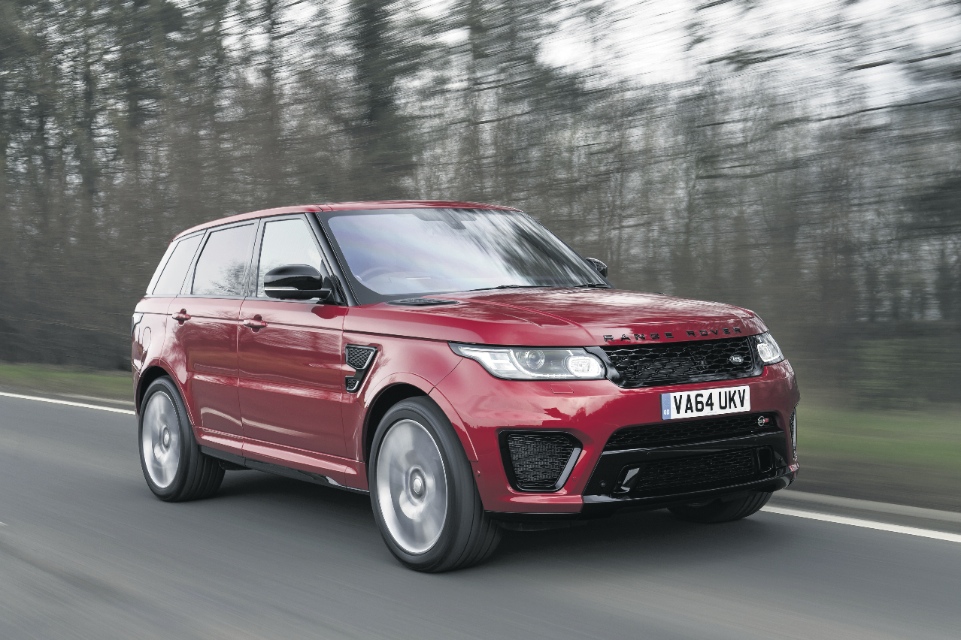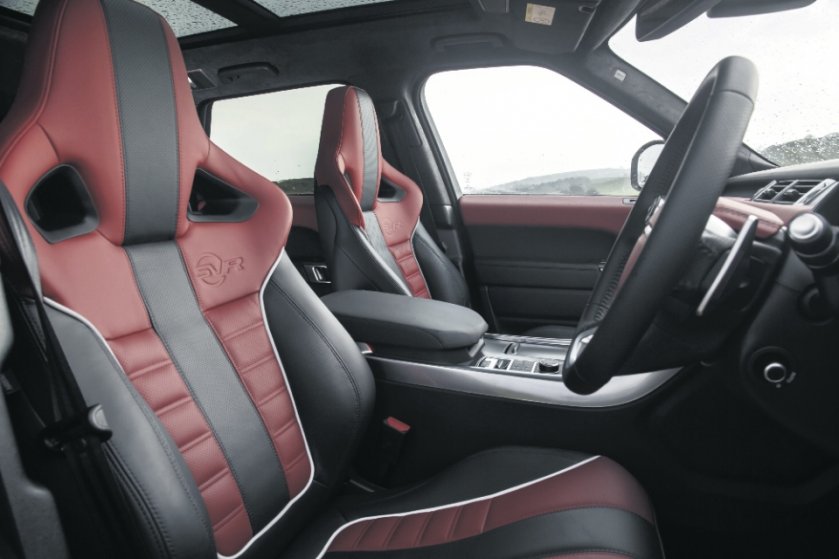Range Rover Sport SVR motoring review: is it as brilliant as it is brawny?

The Oxford English Dictionary defines a sports car as, “A low-built car designed for performance at high speeds”. That makes the modern “sports utility vehicle” – high, heavy and often cumbersome – seem a contradiction in terms. However, not all SUVs are created equal, and the 162mph Range Rover Sport SVR is faster and more dynamic than many so-called sports cars. Is it time to re-write the dictionary?
It’s a marketplace already littered with letters. Audi has RS, BMW has M and Mercedes-Benz has AMG. Now Land Rover – and its sister brand, Jaguar – add to the alphabet soup with SVR. And how better to launch a sporty sub-brand than by shoehorning the 550hp V8 from the Jaguar F-Type R into a Range Rover Sport? Yep, that got our attention…
The SVR doesn’t do subtlety. It grabs you unceremoniously by the lapels and shakes you until you’re thoroughly stirred. Exhaling through four monster tailpipes, its thunderous 5.0-litre V8 spits, pops, growls and roars. Open the exhaust baffles, via a button on the dashboard, and it sounds deliciously anti-social. Nothing this side of a Lamborghini turns more heads.
Performance is brisk, too. The SVR sprints to 62mph in 4.7 seconds and laps Germany’s Nürburgring race circuit in eight minutes 14 seconds. That makes it the fastest production SUV around this tortuous 13-mile loop – less than 20 seconds behind a Ferrari F430. Not bad for something the size of a suburban semi.
On the road, this most super of Sports feels absurdly, hilariously quick – you’ll need Tibetan-monk levels of self-restraint to stay within speed limits. It corners with an agility that’s almost unbecoming of a 2,335kg machine and – mercifully – there’s plenty of stopping power from the beefed-up brakes. And remember, kids – you don’t have to drive fast to have fun. The SVR will also waft along in (relative) serenity, its eight-speed automatic gearbox shuffling ratios so smoothly you barely notice.
 The car's interior
The car's interior
If all that sounds too good to be true, the SVR certainly isn’t perfect. The suspension is very firm for what is ostensibly a family car – the price you pay for track-honed handling. And the bucket-style seats are a tight squeeze for bigger bottoms. We’d also avoid the WAG-spec red and black leather trim of our test car.
The biggest problem with the SVR, though, is the damage it will do to your wallet. For starters, it costs £96,000 – and that’s before you’ve added options such as self-parking (£900) and a 23-speaker Meridian hi-fi (£4,000). And while the price tag is roughly on par with German rivals, it’s still a hefty £33,000 more than a Range Rover Sport 3.0 V6 diesel.
Don’t forget the fuel bills, either. Officially, the SVR returns 22.1mpg, although we saw closer to 15mpg in a mix of city, B-road and motorway driving. Compare that to 45.6mpg for the 340hp SDV6 diesel. Lastly, CO2 emissions of 298g/km mean top-band annual car tax (VED). You’ll pay £1,090 in the first year. then £505 per year thereafter.
As a warning shot for the SVR brand, the riotous Range Rover has undoubtedly done its job. And more SVR models will follow, including a Range Rover Evoque and Jaguar XE.
Clearly, there’s no rational argument for buying this car; it has far more grunt than you’ll ever need and drinks fuel at a rate that may cause a spike in world oil prices. Nonetheless, it’s a charming British brute, one that defies both logic and the dictionary.